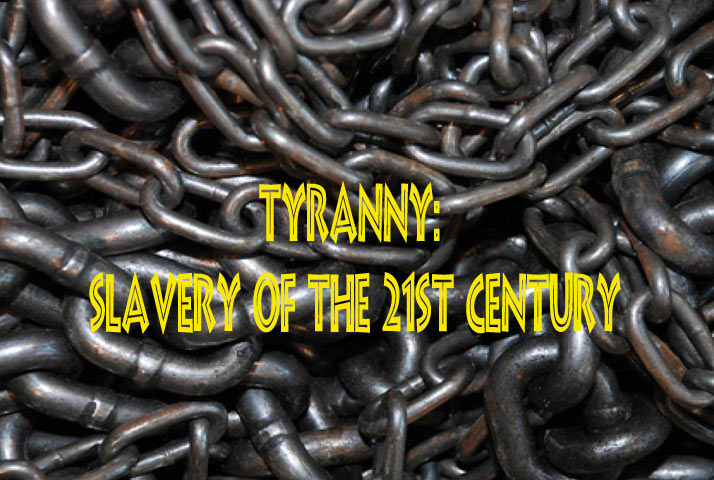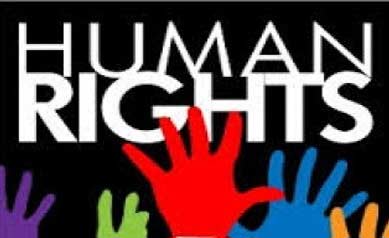The Essence of Isaiasism: Forced Labor
First of all, yes, when awate 7.0 is launched (1/1/14), we will have a blog for Haile the Great (and all our contributors) so that they can post their pieces directly and people don’t have to fish for content in the comments section. This edition of Nahda started out as a response to his announcement–that the Eritrean regime is mobilizing members of the “People’s Army” for terracing campaigns to the outskirts of Asmara and, given the transportation challenges of the country, many are going on foot to work 10-12 hour days for an entire week. Upon reflection, it appears to me that the entire essence of Isaiasism–his sole ideology, his religion–is that forced labor is an indispensable ingredient for development and every resistance from Eritreans has been countered with an alternative forced labor campaign.
1. The whole vision of PFDJ Isaias on how to leapfrog Eritrea from the third world to a developed country is based on one man’s vision: Mao Zedong.
2. The whole basis of China’s leapfrog policy was based on one thing: FORCED LABOR.
3. Of course, the world is aware of how disastrously wrong one forced labor campaign modeled after China’s went– Cambodia’s pol pot and its decimation of a quarter of its own population. A quarter.
4. The problem with Isaias’s vision is that the world has changed since Mao’s time: the UN has promulgated a series of conventions– that prohibit getting forced labor from children, political prisoners, and for economic exploitation (including rights for Indigenous and Tribal Peoples.)
5. Why doesn’t Isaias just ignore international law, you are asking. After all, he doesn’t seem to have much respect for rule of law. Answer will be below, somewhere, when profiling the man.
6. Since the installation of Isaias Afwerki as president, there has been a campaign to solicit near-free labor from Eritreans. These campaigns of terracing hills (by students), sending elderly Eritreans for “maetot” to the villages (busing women from Asmara to the countryside for annual harvests), having prisoners building luxury hotels (that YPFDJ: Young People’s Front for Democracy and Justice types would visit and admire and congratulate the prisoners for their patriotic zeal), have been going on since 1995.
7. The 2001 University of Asmara students movement was a protest against cheap forced labor. The argument was, essentially, this: you have received X funds, for our labor, for this particular project, from external funding; you are proposing to pay us Y; we demand that we get paid X or we are not going. For such defiance, they were rounded up in buses and sent to the hell-hole in WiA, some to Nakura, then asked to write apology letters for cheating the country out of the project (malaria consciousness, literacy) they should have engaged in for no money. They were told that that they deserve long prison terms, it was only the farsightedness and kindness of their government that is sparing them that. They returned broken, to resume their studies, at a university that would soon close.
8. It is shortly after that that the “Warsay-Yekalo” initiative was launched. This so-called “Marshall Plan for Eritrea” was supposed to get rid of the giant magnifying glass on forced labor because (a) it is violation of “national sovereignty” to intrude into how a country organizes its armed forces; (b) the world gives a lot of latitude on what countries do (internally) with their armed forces. It appears all is allowed except having an aggressive posture.
9. The exodus of Eritrean youth is mostly a protest against cheap forced labor.
10. Everything that has happened in Eritrea since the PFDJ/Isaias came to power is a fight between the PFDJ/Isaias imposing forced labor and the people fighting back or leaving the country.
11. Even government officials are not spared from forced labor. They don’t own their labor: they can’t resign, for example. Consider: There should be no reason why a government official should “defect.” A government official who disagrees with government policy should resign. But when was the last time you heard that in Eritrea: a government official resigning? They are promoted, demoted, frozen, thawed, promoted again. The point being: they are the property of Isaias Afwerki.
12. Forced labor has its consequences including squeezing out the private sector: a PFDJ conglomerate using cheap forced labor can out-compete a businessperson trying to provide service or product using voluntary labor. The businessman goes to Uganda or Sudan, the laborer goes to Lampedusa. Every institution is affected: Demand for cheap forced labor empties out religious institutions, compromises the quality of educational institutions, sports, tourism. Even the institutions that are supposed to benefit from it–agriculture, mining, transportation, infrastructure-building, etc–do not because a forced laborer is not a productive laborer.
13. Speaking of mining, in its quarterly report, Nevsun management reports as a highlight (without any sense of irony), that, (a) for the quarter ended 9/30/13, it recorded 13.5 million hours at Bisha Mining (90% of the employees/contractors are Eritrean) and that its lost time injury frequency rate was 0 (nobody got injured or in an accident, a world record) and (b) it has commissioned a human rights panel to investigate allegations by human rights activists (including Amnesty International) that it is using essentially slave labor and that part of this investigative panel will be the Eritrean government, the party accused of violating human rights. Lenin was right about capitalist fools.
14. If you look at the “People’s Army”, the militia that Isaias Afwerki assembled last year, it is not exactly an elite combat unit. It is mostly barely-trained civilians carrying weapons and guarding nothing. By guarding nothing, I mean there isn’t exactly a crime spree in Eritrea (the demographics aren’t there for crimes which are usually committed by young males) and there are no Fort Knox to guard. So, given that the world doesn’t care what governments do with their militia, these folks must have been “enlisted” only so that they could be called for the occasional slave labor. (That and to prevent the idle mind which is the workshop of the devil–plotting and such–which you won’t do if you are kept busy doing nothing.)
15. Isaias Afwerki finds the whole idea of Britain (founded on forced labor of empire) and the US (founded on slave labor) lecturing him on forced labor annoying as hell, particularly when they have nothing critical to say about rich but abusive countries (Gulf Arab states.) He is essentially a man who belongs to a different century and finds the “constraints” the modern world imposes on a good-old authoritarian simply offensive. And all the work-around he creates–Warsay/Yekalao, elderly ladies sweeping streets, old men fixing antique trains, elderly men terracing hills–are because he sees himself as a monarch whose intentions are good: to improve the “quality of life” of his people–50 years from now. (The Mao model of kill a million to save a billion.)
16. Eritrea is a signatory to several UN conventions on labor. Why would Isaias Afwerki care about ILO, Child Labor Laws, etc? Now, this is where Isaias Afwerki’s personality defect is key. I take you back to wikileaks and the analysis of a psychiatrist who has studied cult leaders: Isaias suffers from “a sense of entitlement” (refer to his interviews where he says: I have no contract with the people, nobody in this country owes anybody anything, etc), a “lack of empathy” (refer to his silence on Lampedusa), “envy of others” (refer to his griping that the US has subcontracted its Africa policy to four African “goblel” states–including archenemy Ethiopia) “or belief that others are envious of him” (refer to his claim: We are number one in Africa…Eritrea is scary to the world because its trailblazing a bad example of a good example, that is why they are plotting to empty the country of our youth…), “self-righteous indignation when others are believed to be breaking rules” (refer to his complaints on how UN/US ignoring EEBC, refer to his call for restructuring the UN and the world order.) Because the funds he receives from the “development partners” expressly demand compliance with conventions on labor, he feels he has to (“we are a civilized people.”) But he finds this extremely annoying, a double standard from countries which do not respect labor laws and have high concentration of wealth among a tiny percentage of the population. Thus, the rants on TV about “Washington administration”, “special interest groups”, the “occupy” movement, the Arab Spring: all of that was to overthrow the existing World Order.
17. Credit where credit is due: the person who was way ahead on this and coined “Wefri Barnet” (Slavery campaign) for Warsay-Yeka’alo is Ambassador Adhanom Gebremariam. He wrote a 36-page series called “The Hybrid Philosophy of PFDJ”) in Tigrinya (it was posted at a website which no longer exists, so no link.) At the time, many of us (me included) thought that that was a bit hyperbolic. But he was right.
18. Thus, Isaiasism can be reduced to: “Development Through Cheap Forced Labor” and, in pursuit of that policy, he will enlist the young, when he can, and the old, when the young are not available. The bet is that Eritreans–particularly the Diaspora Eritreans–will forgive everything if the China model works: from starvation to an economic giant. But there is nothing tangible to show for this which is why there is the endless talk about Millennium Development Goals (MDG) and how Eritrea is on track–ahead!–of many of them.
19. Isaiasism relies on Eritreanism whose most defining quality is, as articulated (accurately, I think) by former US ambassador to Eritrea “to withstand suffering and deprivation with forbearance and toughness.” Ironically, Isaias stays in power by flattering our ability to withstand suffering without complaint: here’s more suffering, I knew you could do it, bear it and grin.
20. This ability to withstand suffering with forbearance and toughness will, at some point–and every indication is that this “some point” is getting closer–will snap when people will use the same strength–ability to withstand suffering without complaint–to take a risk on the unknown. To say that the regime is failing another MDG: Minimum Decency Goals.
21. As a friend says, “tHuqen ala“. The momentum is accelerating.




Awate Forum